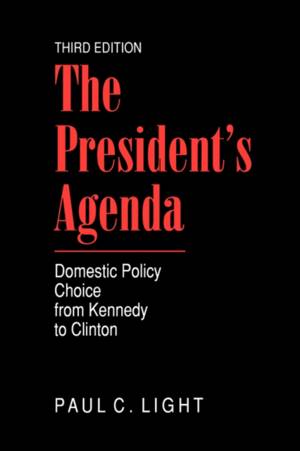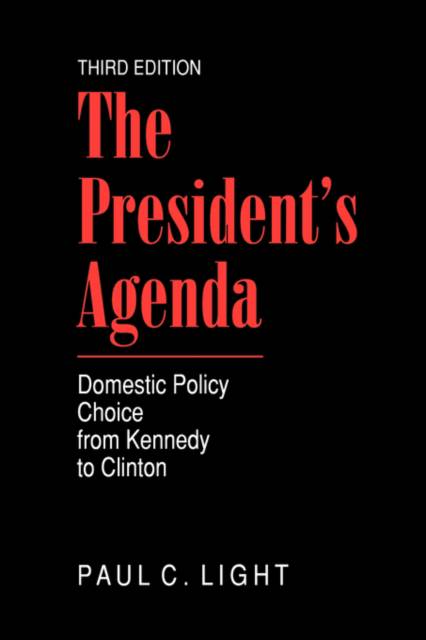
- Afhalen na 1 uur in een winkel met voorraad
- Gratis thuislevering in België vanaf € 30
- Ruim aanbod met 7 miljoen producten
- Afhalen na 1 uur in een winkel met voorraad
- Gratis thuislevering in België vanaf € 30
- Ruim aanbod met 7 miljoen producten
Omschrijving
In this third edition of The President's Agenda, Paul Light brings his acclaimed study up to date by weighing the successes and failures of the Bush and Clinton presidencies in setting a legislative agenda of domestic issues for Congress. The most noticeable development, according to Light, is the shrinking of the agenda and the absence of fresh new ideas. Explaining the emergence of "the derivative Presidency," he attributes this increasingly limited agenda to the problems associated with the end of the welfare state, the thickening of government, the problems of the budget, the "Reagan effect," and the changing nature of party politics. With Light's latest judgments and insights, The President's Agenda remains an invaluable text for courses on the American presidency.
"What has changed is the content of the President's agenda. Even under similar political conditions, both Bush and Clinton had fewer proposals than their predecessors, and both tended to favor modifications of the status quo over bold breaks with the past. Although there are important differences between the two Presidents, not the least of which is Bush's high proportion of small-scale, old ideas, the two share a pronounced tendency to look backward for inspiration rather than forward."--from the Preface
Specificaties
Betrokkenen
- Auteur(s):
- Uitgeverij:
Inhoud
- Aantal bladzijden:
- 328
- Taal:
- Engels
Eigenschappen
- Productcode (EAN):
- 9780801860669
- Verschijningsdatum:
- 22/01/1999
- Uitvoering:
- Paperback
- Formaat:
- Trade paperback (VS)
- Afmetingen:
- 153 mm x 231 mm
- Gewicht:
- 480 g

Alleen bij Standaard Boekhandel
Beoordelingen
We publiceren alleen reviews die voldoen aan de voorwaarden voor reviews. Bekijk onze voorwaarden voor reviews.











